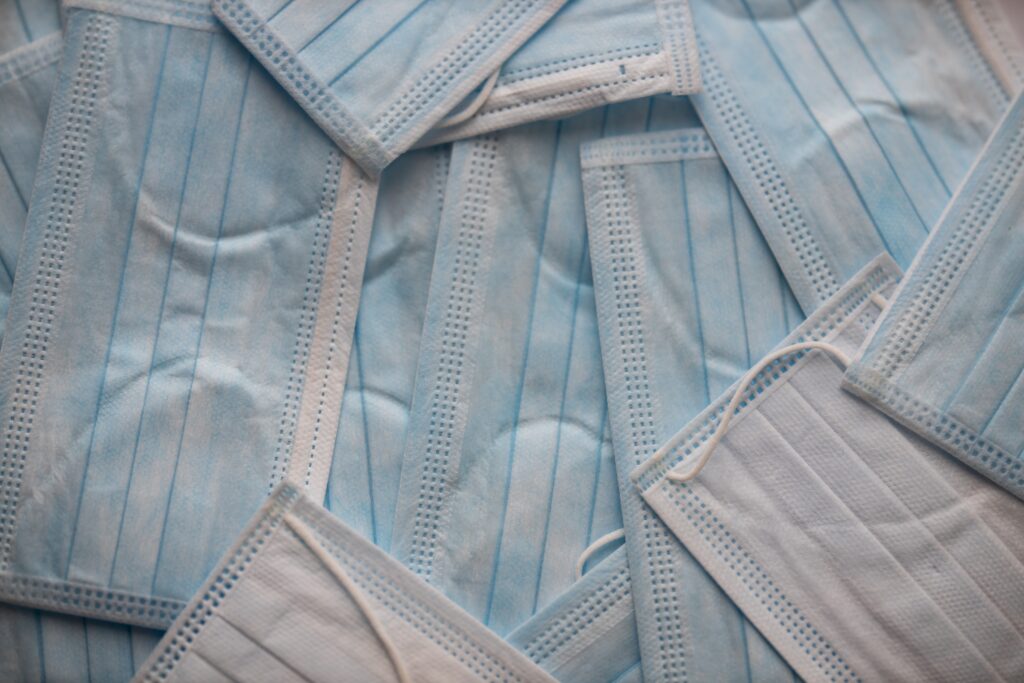Not surprisingly, the COVID-19 pandemic is generating tons of medical waste, which includes personal protective equipment, waste from infected patients (food and dining boxes), and infusion bottles and bags. In this fast-changing environment marked by uncertainty, volumes are changing, and it’s necessary to minimise its impact. As we’re struggling to mitigate the risks of the novel coronavirus, we’ve got another problem on our hands: how to deal with medical waste in a safe and effective way.
If dumped into the landfills, the waste generated by hospitals and other health care facilities can contaminate water-drinking resources and expose the animals (and other living beings) to toxins.

COVID-19 waste doesn’t get special treatment in many countries, but it should
Medical waste from COVID-19 can’t be treated in the same way as standard medical waste.
In Spain, which is being hit again by the coronavirus pandemic, hazardous materials are incinerated in specialised plants, while others are sterilised in autoclave sanitary waste processing plants that kill the microorganisms using steam under pressure. COVID-19 waste deserves special treatment, a labour-intensive undertaking. The medical waste being produced right now isn’t comparable to household waste – in other words, it poses certain risks. To reduce the volume of biomedical that demands specialised treatment it’s necessary to separate hazardous from non-hazardous waste, just like it happens in different industries.
We can’t overstate the importance of safe handling, transportation, and final disposal of medical waste because it can lead to unanticipated outcomes. It should be double-packed with dedicated plastic bags and containers, followed by sterilisation. The discarded material that’s potentially infectious should be removed from health care facilities immediately, so they’re not stored for a very long time at hospitals and centres. Needless to say, not everyone should have access to medical waste, which is due to be transported to an incinerator. Implementing relevant waste management measures actually helps in the fight against COVID-19.
How do NHS hospitals dispose of medical waste?
According to the Advisory Committee on Dangerous Pathogens, COVID-19 waste must be packaged in UN-approved orange bags, while sharps and pharmaceutically contaminated items must be put into different containers and sent for incineration. In all healthcare settings, COVID-19 waste must be treated as regular infectious waste, respecting national regulations. Infectious waste, the most common and most voluminous, is placed into separate bins, after which the residues are compacted. The waste is reduced by 80% in volume, which is deemed suitable for handling infectious waste and sharps in locations where space and height are restricted.
The British government hasn’t made drastic changes in the existing health care waste management plans and policies when dealing with COVID-19 waste, which is disposed of as normal domestic residual waste. In spite of the fact that the quantity of medical waste has increased significantly since the coronavirus outbreak, biowaste materials have been handled in the same way as before.
There are some lessons to be learned from the Republic of Korea’s approach to waste management, who has implemented emergency measures to dealing with the waste coming from hospitals, residential treatment facilities, and self-quarantined people. We may never see a pandemic again, but that doesn’t mean that COVID-19 will go away. It will probably continue like the seasonal flu.
Health care facilities are the ones that collect the waste, but transporting, sterilising, and processing them falls into the responsibility of the municipalities. Health care waste management plans and policies are backed by political decisions and it’s necessary to mobilise government efforts and resources for the successful implementation of change.
The existing waste management policies and guidelines fail to address the current reality. It’s not feasible to continue to treat COVID-19 waste in the same manner as regular medical waste. To be more precise, it’s paramount to approach things more cautiously.
The urgent need to introduce medical waste disposal technology
Following the coronavirus outbreak in Wuhan, we’ve witnessed a great many changes. Treatment facilities for COVID-19 waste in China have become automated, based on the IoT technology. The entire process can be monitored in real-time and most, importantly, there’s no need to have too many workers on-site. Sanitation workers work closely with infectious waste in an effort to protect communities, while putting their health at risk.
They’re provided personal protective equipment to prevent physical contact and trained to keep a distance from people who might have caught the deadly disease.
To prevent COViD-19 from spreading from person to person, it would be a good idea to implement an automated medical waste disposal unit that doesn’t require human intervention. The waste management process can be automated with the help of artificial intelligence. The effective use of machines and robots can help manage this particular issue. Health risks aside, medical waste discarded without much consideration poses threats to the environment. Investments in waste and recycling technologies are worthwhile because they can help protect the ecosystem and build a more sustainable future. In China, facilities have made the transition from incineration to non-incineration disposal technologies, of which mention can be made of microwaves.
Can the medical waste problem be fixed?
The global health care industry is struggling to address the fast-growing medical waste. Up to now, it hasn’t been so successful. Governments are doing everything possible to manage the increase in infectious medical waste generated by the COVID-19 pandemic, while concentrating on reducing the spread of the coronavirus and other diseases. Some are making progress in recovering medical devices and equipment. Medical waste recycling has been made more visible. Unfortunately, the list of accepted materials changes by the day, which means that it’s necessary to re-educate staff who need to become familiar with new sorting systems.
To sum up, there is a stringent need for global engagement and the development of a robust plan. Recycling is forecasted to become a key trend when it comes to waste management, addressing issues such as the medical supply shortage. It’s paramount to protect people, as well as the environment. Every idea should be taken into consideration, particularly during these tough times dominated by SARS-CoV-2.







